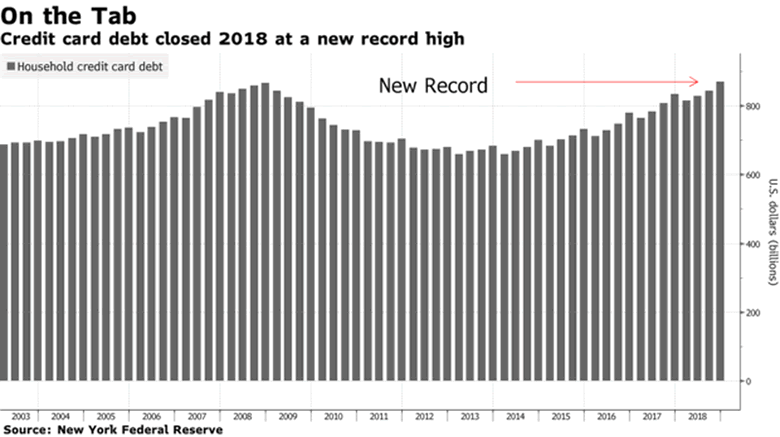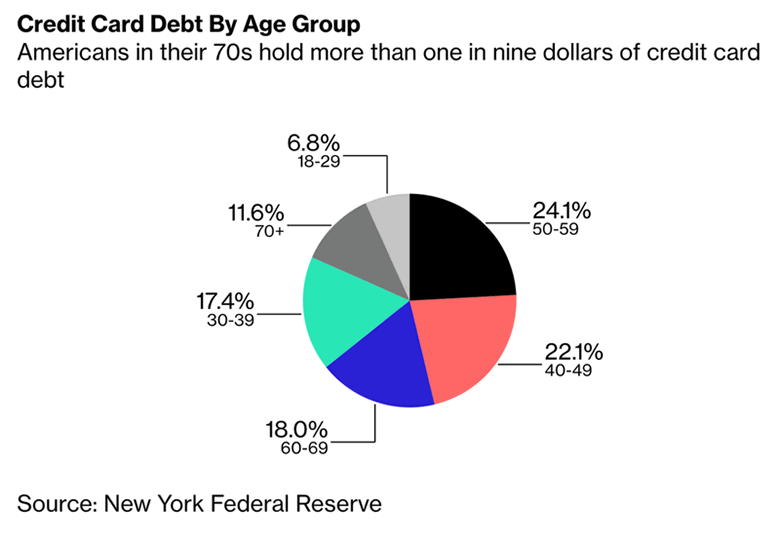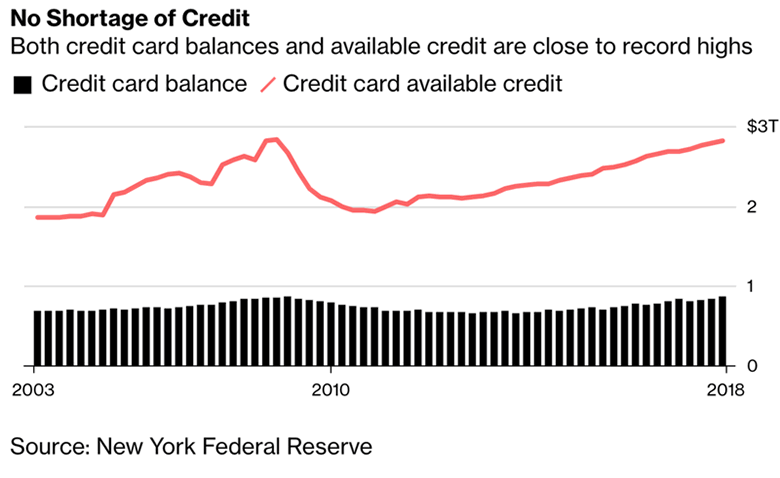
|
37 Million Credit Card Accounts Were 90 Days Past Due In 4Q18 Aggregate household debt balances jumped in 4Q18 for the 18th consecutive quarter, and were $869 billion (6.9%) above the previous peak (3Q08) of $12.68 trillion. As of late December, total household indebtedness was at a staggering $13.54 trillion, $32 billion higher than 3Q18. Overall household debt is now 21.4% above the 2Q 2013 trough, according to quarterly data from the Fed.
“The increase in credit card balances is consistent with seasonal patterns but marks the first time credit card balances re-touched the 2008 nominal peak,” according to the report. There are approximately 480 million credit cards in US circulation, that is 1.47 credit cards per citizen, and up more than 100 million since the 2008 financial crisis.
More troubling is that according to the Fed, 37 million Americans had a 90-day delinquent strike added to their credit report last quarter, an increase of two million from the fourth quarter of 2017. These 37 million delinquent accounts held roughly $68 billion in debt.
Credit-card balances slipping into serious delinquency have been growing for the last several years, according to the Fed. As of 2019, a record number of Americans also have auto loans that are 90 days past due. “The substantial and growing number of distressed borrowers suggests that not all Americans have benefited from the strong labor market and warrants continued monitoring and analysis of this sector,” economists Andrew Haughwout, Donghoon Lee, Joelle Scally, and Wilbert van der Klaauw noted in a Feburary report. Rising delinquency levels pose a serious risk to consumer spending, which accounts for more than 2/3 of economic activity. Almost a third of the credit card debt is held by the baby boomer generation, while millennials are up to their eyeballs in student loans. That could be troubling because some of the oldest and youngest borrowers are financially dependent on family members, according to Josh Wright, the chief economist at iCIMS and a former Federal Reserve staffer. “This tells us that if the expected economic slowdown gets serious, these are the groups that will pose the biggest threat to the economy,” he said.
|
| © 2006 - 2022. All Rights Reserved. |


